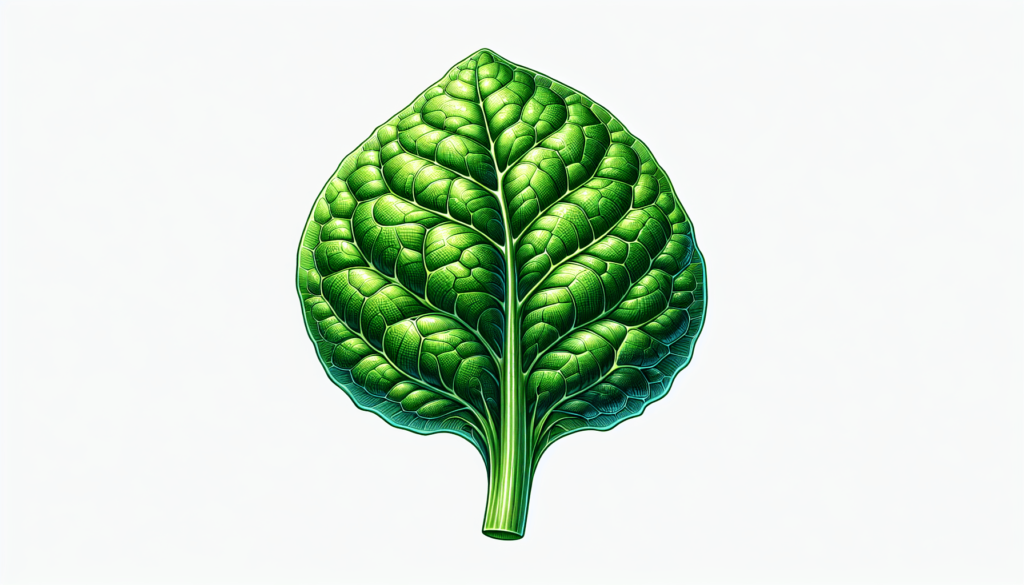Welcome to the world of Vitamin K and its incredible benefits for your body! Vitamin K plays a crucial role in blood clotting, bone health, and heart health. It helps maintain strong bones and prevent cardiovascular diseases by supporting your body’s essential functions. So, get ready to learn all about how Vitamin K can enhance your overall well-being and keep you feeling your best!
How Does Vitamin K Benefit The Body?
Have you ever wondered how vitamin K can benefit your body? Let’s dig into the details and explore the various ways in which this essential nutrient supports your overall health and well-being.

What is Vitamin K?
Vitamin K is a fat-soluble vitamin that plays a crucial role in blood clotting, bone metabolism, and maintaining overall health. There are two main forms of vitamin K: K1 (phylloquinone) and K2 (menaquinone). While both forms are important, they serve different functions in the body.
Vitamin K1 is primarily found in green leafy vegetables like spinach, kale, and broccoli, while vitamin K2 is produced by bacteria in the gut and is also present in some animal-based foods like cheese and natto, a traditional Japanese dish made from fermented soybeans.
Why is Vitamin K Important for Your Health?
Vitamin K is essential for various biological processes in the body, including:
- Blood Clotting: Vitamin K plays a key role in the coagulation process, helping to stop bleeding by enabling the formation of blood clots.
- Bone Health: Vitamin K is necessary for the metabolism of calcium, a mineral essential for maintaining strong and healthy bones.
- Heart Health: Some studies have suggested that vitamin K may help reduce the risk of cardiovascular diseases by preventing the calcification of arteries.
- Brain Function: Emerging research indicates that vitamin K may support cognitive function and protect against age-related cognitive decline.

Blood Clotting and Vitamin K
One of the primary functions of vitamin K is its role in blood clotting. When you get a cut or injury that causes bleeding, your body relies on vitamin K to help form a blood clot and stop the bleeding. Without adequate levels of vitamin K, the blood would not be able to clot effectively, leading to excessive bleeding and potential complications.
In the blood clotting process, vitamin K activates proteins called clotting factors, such as prothrombin and factor VII, which are essential for the formation of a stable blood clot. Vitamin K-dependent clotting factors help initiate and sustain the clotting process, ensuring that the bleeding stops and the wound can heal.
Impact of Vitamin K Deficiency
A deficiency in vitamin K can lead to various health issues, including:
- Increased Risk of Bleeding: Without enough vitamin K, your blood may not be able to clot properly, increasing the risk of excessive bleeding from even minor injuries.
- Decreased Bone Density: Vitamin K is necessary for the metabolism of calcium and the production of proteins that support bone health. A deficiency in vitamin K can result in decreased bone density and increase the risk of osteoporosis.
- Cardiovascular Problems: Some research suggests that low levels of vitamin K may be associated with an increased risk of cardiovascular diseases, including atherosclerosis and heart attacks.
It’s essential to ensure an adequate intake of vitamin K through your diet or supplements to support these vital functions and maintain overall health.

Food Sources of Vitamin K
To ensure you’re getting enough vitamin K in your diet, consider incorporating the following food sources:
| Food Source | Vitamin K Content (mcg per 100g) |
|---|---|
| Spinach | 482.9 |
| Kale | 563.0 |
| Broccoli | 101.6 |
| Brussels Sprouts | 177.0 |
| Natto | 813.0 |
| Chicken Liver | 14.1 |
| Prunes | 59.5 |
| Blueberries | 19.3 |
By including a variety of these vitamin K-rich foods in your diet, you can ensure that you’re meeting your daily requirements and supporting optimal health.
Vitamin K Supplements
In some cases, individuals may require vitamin K supplements to address deficiencies or support specific health conditions. It’s essential to consult with a healthcare provider before starting any supplement regimen, as excessive intake of vitamin K can have adverse effects, especially for individuals on blood-thinning medications or with certain medical conditions.
Vitamin K supplements are available in various forms, including vitamin K1 and vitamin K2 supplements. Depending on your specific needs and health goals, your healthcare provider can recommend the most suitable supplement and dosage to meet your requirements.

Vitamin K and Bone Health
Vitamin K plays a crucial role in bone metabolism, helping to regulate calcium deposition and promote bone mineralization. By activating proteins that support bone health, vitamin K contributes to maintaining strong and healthy bones, reducing the risk of fractures and osteoporosis.
In combination with other nutrients like calcium and vitamin D, vitamin K supports bone density and strength, especially as we age and face an increased risk of bone-related issues. Ensuring an adequate intake of vitamin K through your diet or supplements can help support optimal bone health and reduce the risk of bone diseases.
Vitamin K and Heart Health
Recent studies have suggested that vitamin K may also play a role in cardiovascular health by preventing the calcification of arteries, a common risk factor for heart disease. By supporting proper calcium metabolism and reducing the buildup of calcium in the arteries, vitamin K helps maintain arterial flexibility and prevent the hardening of blood vessels.
In addition to its role in preventing arterial calcification, vitamin K may also have anti-inflammatory and antioxidant properties that can benefit cardiovascular health by reducing inflammation and oxidative stress in the blood vessels. These combined effects contribute to overall heart health and reduce the risk of cardiovascular diseases.
Vitamin K and Brain Function
Emerging research has explored the potential benefits of vitamin K for brain health and cognitive function. Some studies suggest that vitamin K may protect against age-related cognitive decline by supporting neuronal health and promoting brain cell function.
By reducing oxidative stress and inflammation in the brain, vitamin K may help preserve cognitive function and memory, especially in older adults. While more research is needed to fully understand the mechanisms underlying the link between vitamin K and brain health, the existing evidence points to the potential neuroprotective effects of this essential nutrient.
Conclusion
In conclusion, vitamin K plays a vital role in various biological processes in the body, including blood clotting, bone metabolism, heart health, and brain function. By ensuring an adequate intake of vitamin K through your diet or supplements, you can support these essential functions and maintain optimal health and well-being.
Whether you’re focusing on maintaining strong bones, supporting cardiovascular health, or preserving cognitive function, vitamin K can be a valuable ally in your journey towards better health. Remember to consult with your healthcare provider to determine the best approach to incorporating vitamin K into your daily routine and optimizing its benefits for your overall health.
